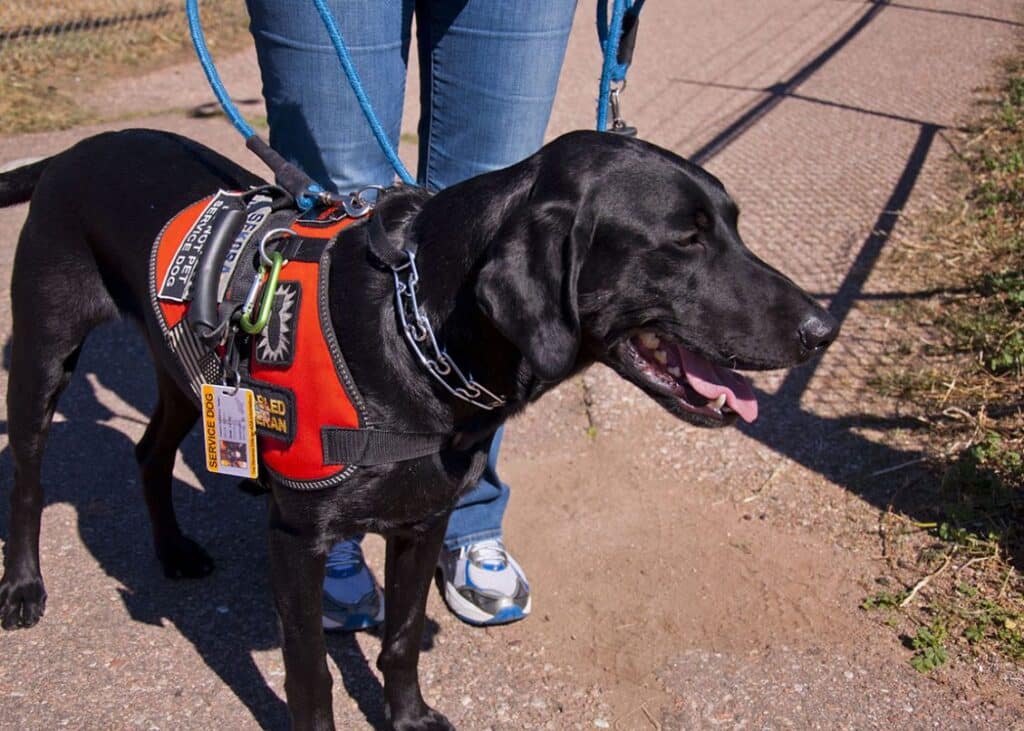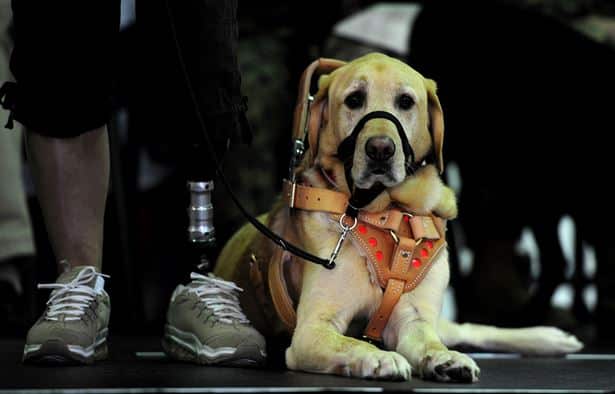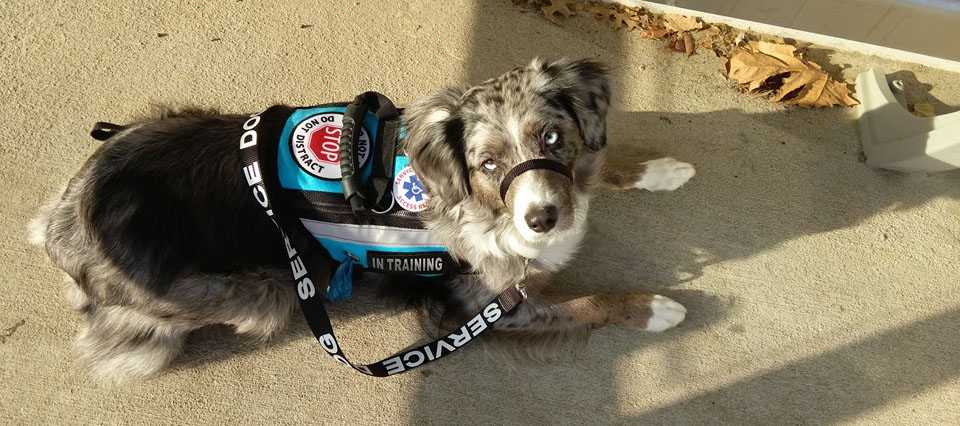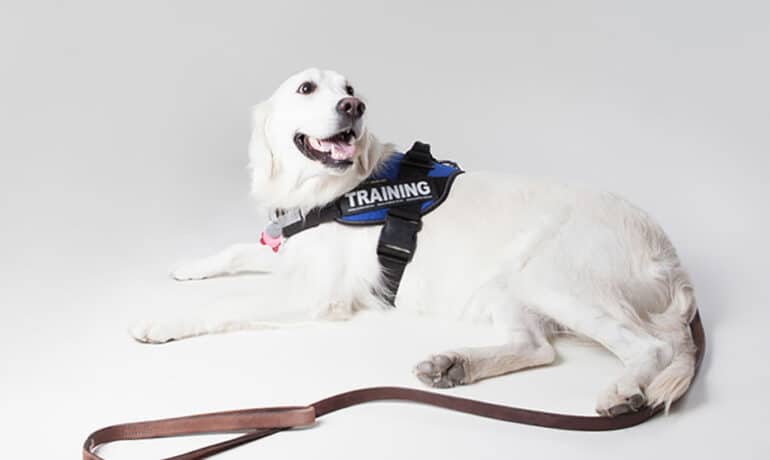We all love our pets and wish they could always be by our side. Your pet is a sweetheart that wouldn’t hurt a fly and you want to take him everywhere. No harm in that, right?
Just being around them can help improve a person’s physical and mental health such as decrease stress, lower blood pressure and increase socialization. With such amazing benefits, it’s easy to see why some pet owners may be tempted to fudge on some details in order to get their pet certified as a working animal, like an emotional support certification.
When it comes to faking working animal certifications for a pet, can the repercussions have a negative effect on the service animal community as a whole? From harming the legitimacy of disabled people with real service animals and putting businesses in difficult situations to potentially putting your non-service pet in traumatic and stressful settings; it’s clear that the service animal topic is in need of more education to the public.
Background on Working Animals
There are several types of working animals that provide support of some kind to their human handlers:
Service Animals:
- Service – These animals train for years to help their disabled handler accomplish tasks and goals they would otherwise be unable to do themselves. Because of these necessary services they provide, service dogs are allowed by law to be just about anywhere their human handler goes.
- Psychiatric – Another kind of official service animal, psychiatric service animals help their handlers deal with mental disabilities such as PTSD, autism, anxiety, and schizophrenia. These types of service animals are entitled to the same rights and access laws nearly everywhere.


Non-Service Animals:
While they all offer help to their human in need in some way, the distinction between emotional support and therapy animals do not meet criteria as service animals like their psychiatric and service counterparts.
- Emotional Support – The presence of an emotional support animal is what comforts their owners. While they do not have regulated training requirements and are not service animals, the law requires that they are allowed in all housing and airplanes.
- Therapy – These animals train for years to provide comfort, affection, and interaction to people, but are not official service animals and are not privy to access most public places like their service counterparts.
Working Animals Are Not Pets
An important note on this hot topic is that not one of these types of working animals is a pet. They are an animal that has been trained to provide a service of some kind to a human in need.
While the animal’s handler or owner may have a strong bond and love for their animal, the reason they have the animal is because they need them to perform their daily tasks due to a disability, making the relationship much different than that of a personal pet.
Are fake service animals really harming anyone?
Service animals are extensively trained to go unnoticed in public places. They will not react to others, sniff food, bark (unless trained to notify their handler of danger such as low blood pressure or oncoming seizure) or relieve themselves out of turn. If approached or attacked by another animal, they will not react.
If your animal is not thoroughly trained to these standards, they would be considered untrained or undertrained when you bring them into public places. But your pet is so sweet and well-mannered, that this couldn’t possibly be a problem – right? From handlers and businesses to the service animals themselves, more and more negative repercussions are being experienced by all parties as the problem continues.
Legitimate Handlers
One of the biggest issues with fake service animals is the deterioration of respect and good reputations of those legitimate service animals and disabled handlers.
Now that the number of service or working animals has gone way up, and the documentation to “certify” them is incredibly easy and cheap to obtain from sources with few to no requirements, real service animals and their owners are looked down upon or questioned for their legitimacy.
Businesses
Businesses can also suffer from people wrongfully bringing in a fake or undertrained service animal. As crazy as it may seem to pet lovers, not everyone likes being around pets and some have serious allergies to them. If your animal is anything short of the high standards set forth by certified service animals, they are not fit to be in public places.
Many businesses fear the threat of being sued for questioning the legitimacy of service animals and so let it slide. But there have been increasingly more reports in the news about untrained or fake service animals disrupting and endangering the cleanliness or well-being of others in public places.
Some companies, such as Delta, have had to set more strict guidelines for allowing service animals on flights because of increasingly problematic situations with fake service dogs. It’s unfair to businesses, but even more so to their legitimately disabled customers, when extensive rules and regulations need to be put into place to ensure the safety of the people using their facilities or services.
Service Animals
There is an abundance of stressors that present themselves to animals when in public. If the animal is not properly selected and trained to be 100% temperamentally sound in the situations that commonly arise, they can experience extreme anxiety and fear, potentially causing them to react in a way that could bother or harm others.
It’s unfair to an animal that has not been rigorously trained to put them in those situations and expect them to handle it without any reaction. Kids will grab at dogs’ ears or strangers will approach an animal incorrectly, the presence of another animal can set them off, loud noises can make pets skittish – all of these extremely common occurrences act as stressors that can make an animal react in ways they normally would not. Some reactions, if harmful enough, could even result in the animal’s euthanasia.

While having your pet by your side everywhere you go may be your dream, it’s essential to the well-being of the public, your pet, and the legitimately disabled service teams that you educate yourself on how this could negatively affect them. If you have questions about this topic, our Grand Valley Animal Hospital team is happy to help point you in the right direction. Give us a call today at 701.757.3500.

